
Students Should Learn to Build from Their Strengths
When it comes to a writer’s mindset, optimism isn’t a sunny disposition, blind positivity, or an imperviousness to the frustrations of revision. Just the opposite. It’s having a clear-eyed acknowledgment of all the challenges revision poses—and then taking them on anyway because our draft is worth it.
Optimism isn’t falling in love with every phrase we put to the page. It’s the noticing—and building off of—the ideas we’ve written that are most striking to us. It’s finding the lines that keep us going and feeling positive. It’s caring so much about a piece of writing that we just have to get the words right.
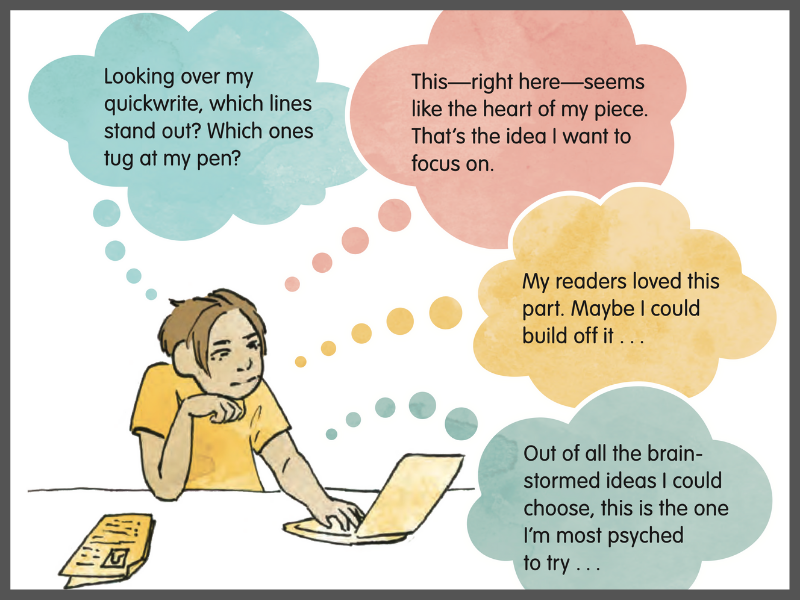 When our students are writing with optimism, all sorts of questions and possibilities stream through their minds.
When our students are writing with optimism, all sorts of questions and possibilities stream through their minds.
Conferring and Peer Conferring Around Strengths
Dedicate some conferences to simply focusing on what’s working with your students’ writing—the knock-the-ball-out-of-the-park successes and even just the promising attempts and the “almost said.” Stay laser focused on the positives of a piece and avoid the temptation to stray off into the buts (“This piece has a great lead, but . . .”).
We can certainly set aside times for critical feedback, but when we’re trying to build
optimism—particularly early in the life of a draft—it helps to cast a spotlight on its potential, not its shortcomings.
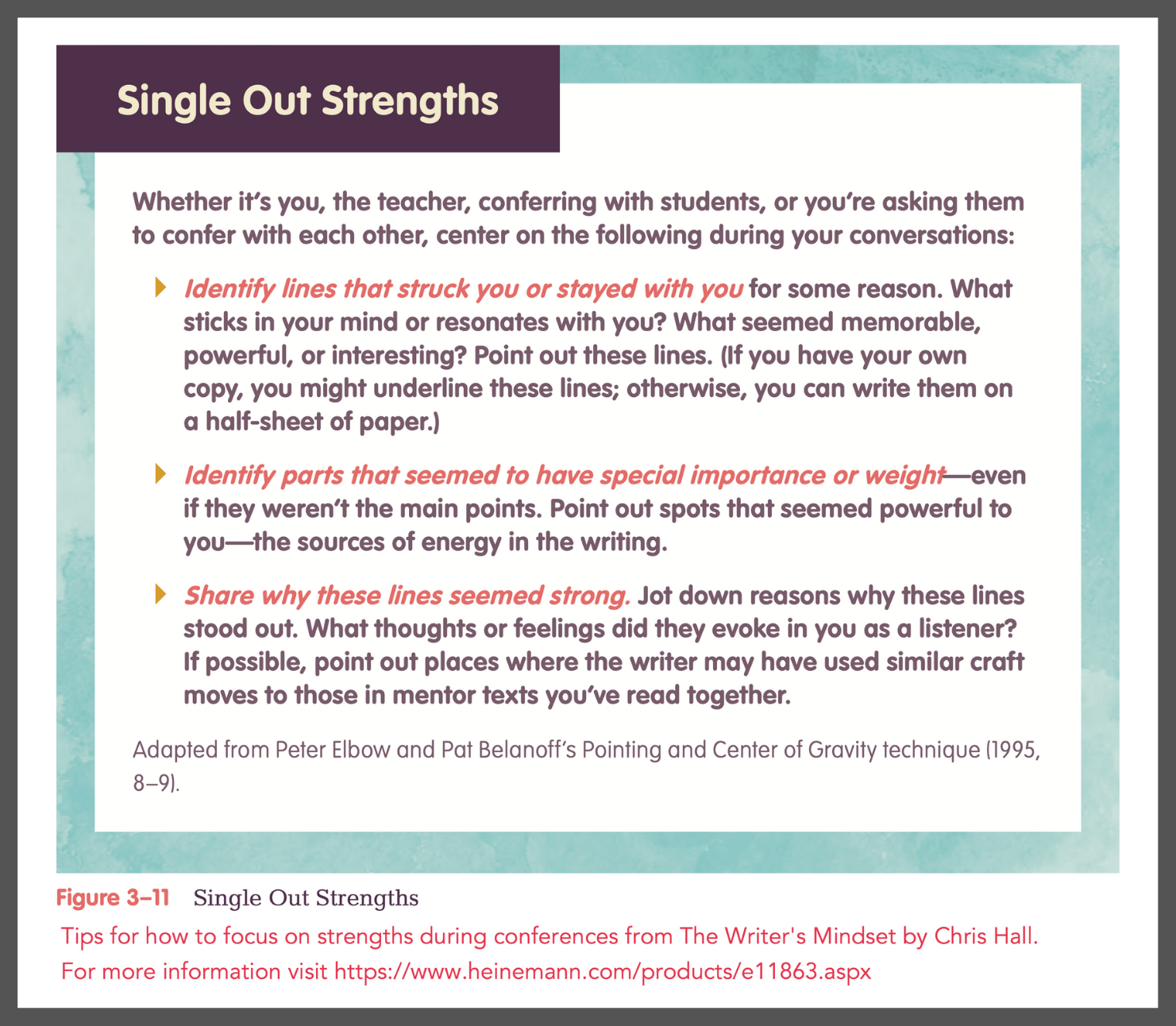 Try “Kudos only” with Peers
Try “Kudos only” with Peers
When you have your students give each other writing feedback, ask them periodically to limit it to “kudos only.” For a variety of reasons, some students may resist this, so front-load it with a brief class discussion.
- Discuss why we might want to focus solely on the strengths in each other’s drafts (e.g., it keeps us writing, especially early in the process, when we’re not quite ready for suggestions).
- Discuss how to give meaningful praise by being specific. Ask your class: “How would pointing out specific lines or strengths of a piece be helpful?” (e.g., so the writer would know exactly what worked; so they could try similar lines or moves in other sections or future drafts).
- Encourage readers to point out strengths—genuine ones—even if a piece seems rough at first. Show them how to comment on the promising ideas that seem important (even if they aren’t fully realized yet). Model how they can praise the writer’s efforts (for example, an attempt to use a craft move, like dialogue), even if they fall a bit short.
To get your students to focus on strengths, you could use a version of the Peer Conference Kudos handout (link below) or try any number of creative variations. One of my students, Courtney, asked to create a “poetry pocket” for each student in our class—a little pouch where we could slip positive notes about each other’s writing to one another.
Throughout the week, we would take time to read new poems from our peers posted on the bulletin board and then leave each other praise.
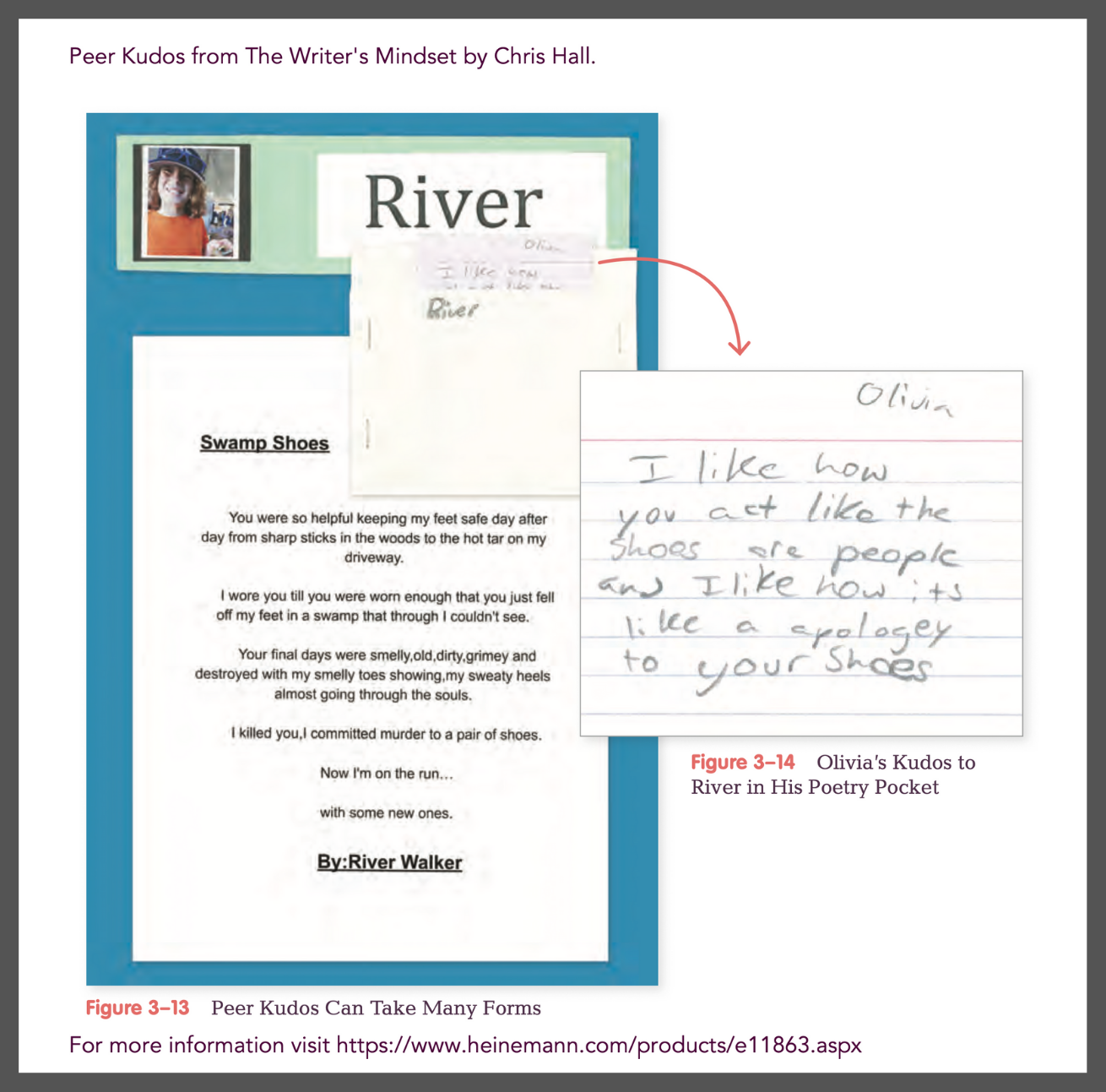 In her note to River about his piece “Swamp Shoes,” Olivia pointed out the personification he was using (“I like how you act like the shoes are people”). She also noticed—and relished—how he had apologized to his shoes for destroying them with his “smelly toes” and “sweaty heels.” Olivia’s comment was a nod to the apology poems we had read in class (including William Carlos Williams’ classic “This Is Just to Say”); in this way, she had connected River’s efforts to a mentor text we had all read (and loved).
In her note to River about his piece “Swamp Shoes,” Olivia pointed out the personification he was using (“I like how you act like the shoes are people”). She also noticed—and relished—how he had apologized to his shoes for destroying them with his “smelly toes” and “sweaty heels.” Olivia’s comment was a nod to the apology poems we had read in class (including William Carlos Williams’ classic “This Is Just to Say”); in this way, she had connected River’s efforts to a mentor text we had all read (and loved).
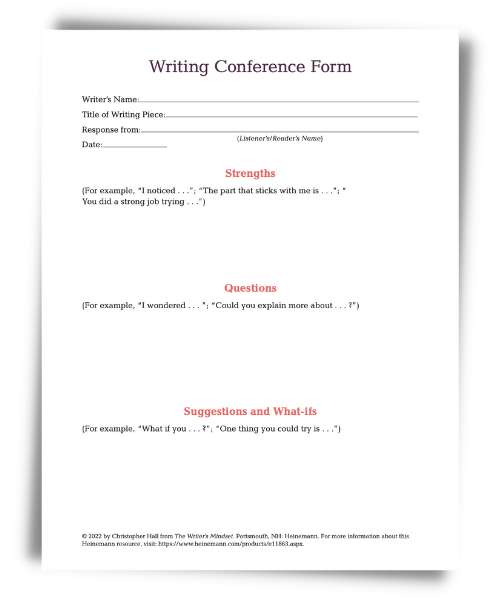 Whether you try this handout or something homegrown (like poetry pockets), try focusing some feedback solely on the strengths in your students’ writing. It will help foster optimism in your writers – generating excitement and momentum to build off what’s already working. To learn more about how to spark a writer’s mindset with your students, visit The Writer’s Mindset.
Whether you try this handout or something homegrown (like poetry pockets), try focusing some feedback solely on the strengths in your students’ writing. It will help foster optimism in your writers – generating excitement and momentum to build off what’s already working. To learn more about how to spark a writer’s mindset with your students, visit The Writer’s Mindset.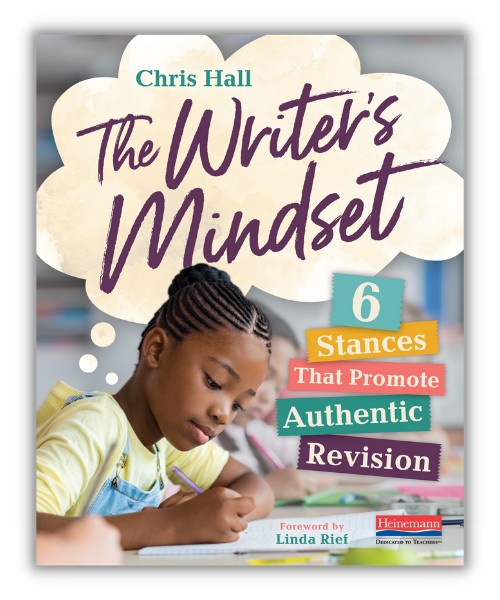
 Chris Hall teaches language arts at Oyster River Middle School in Durham, NH. Over the past 20 years he has taught in urban, suburban, public, independent, and international schools, where he has helped young writers find authentic purpose, build community, and discover the power of their own words. Chris served as a Heinemann Fellow, researching innovative writing practices within a cohort of dynamic educators from across the country.
Chris Hall teaches language arts at Oyster River Middle School in Durham, NH. Over the past 20 years he has taught in urban, suburban, public, independent, and international schools, where he has helped young writers find authentic purpose, build community, and discover the power of their own words. Chris served as a Heinemann Fellow, researching innovative writing practices within a cohort of dynamic educators from across the country.
You can find him on Twitter at @CHallTeacher.



